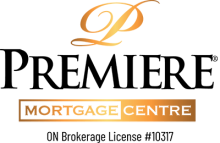Interest Rates set to increase by 0.50%
Inflation Influence
In its statement accompanying the decision, the Bank said, “With the economy moving into excess demand and inflation persisting well above target, the Governing Council judges that interest rates will need to rise further.”
As such, we can expect the Prime lending rate for financial institutions to increase by 0.50%, up to 3.20%, with potentially more increases to come this year.

Potential consequences of the rate hike
With more rate increases on the horizon, there are some important questions to ask yourself:
Can I stomach more increases to my mortgage payment? When I originally qualified you for your mortgage, we had to “stress test” you, meaning we were already assessing your ability to pay the mortgage at a much higher rate based on your income and debt load. You passed this stress test, which was based on a rate of close to 5%, otherwise you wouldn’t have been approved for the mortgage.
Is there a chance I’m going to need (or have) to make a significant change to my mortgage, for reasons I may choose, or not choose to? When you look at the stats, around 60% of Canadians will “break” their mortgage midterm and incur a penalty to do so. With a variable rate mortgage, this penalty is limited to 3 months’ worth of interest. If you were in a fixed rate mortgage, this penalty is typically the “Interest Rate Differential” (IRD). The IRD penalty on average is around 900% larger than the 3 months interest penalty. People make changes to their mortgage all the time, whether they think they will do so is another matter, until it becomes reality that they need to.
Will I lose sleep over potential future adjustments to my payment? If so, then maybe locking into the fixed rate is the right decision for you. However, if you do that now, you are voluntarily doing exactly what you don’t want to; increasing your payment and your interest rate. Fixed rates are currently around 1.50% greater than variable rates. That is another 6 0.25% increases to the overnight rate, or another 3 increases of 0.50%.
Future Factors
The chance of a potential recession in the future is also increasing. If that were to happen, we would expect to see the overnight rate decrease, thus decreasing the Prime rate, and lowering the interest payable on your variable rate mortgage again.
None of us foresaw COVID coming, and what it did to rates, a similar event in the near future could have the same effect. Will you regret locking in at what may be the peak of fixed rates if we start to see a decrease again to both variable and fixed rates?
Historically, statistics reveal that variable will come out on top. You may just have to endure some short term pain in 2022, for the longer term gain.
Tim Ward, Collingwood Mortgage Broker.
Still Feeling Unsure?
If you still have questions or concerns, please don’t hesitate to reach out!









